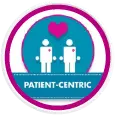Exploring Other Sleep Disorders: Symptoms, Diagnosis, and Treatment Options
Beyond insomnia, several other sleep disorders can significantly impact an individual’s ability to get a restful night’s sleep. Understanding these disorders, their symptoms, and available treatment options is essential for managing them effectively. Here’s a deep dive into some common sleep disorders:
Sleep Apnea:
Symptoms: Loud snoring, pauses in breathing during sleep, daytime sleepiness, and waking up with a dry mouth or sore throat.
Diagnosis: Sleep apnea is typically diagnosed through a sleep study (polysomnography) that measures various parameters during sleep, including breathing patterns, oxygen levels, and brain activity.
Treatment: Treatment options include continuous positive airway pressure (CPAP) therapy, oral appliances, and lifestyle changes such as weight loss and positional therapy.
Restless Legs Syndrome (RLS):
Symptoms: Uncomfortable sensations in the legs, often described as crawling, creeping, or tingling, that occur when at rest and are relieved by movement.
Diagnosis: Diagnosis is based on the individual’s symptoms and may involve ruling out other potential causes.
Treatment: Treatment options include medications to alleviate symptoms, lifestyle changes, and managing underlying conditions that may worsen RLS symptoms.
Narcolepsy:
Symptoms: Excessive daytime sleepiness, sudden loss of muscle tone (cataplexy), sleep paralysis, and hallucinations.
Diagnosis: Diagnosis involves a thorough evaluation of symptoms, a physical exam, and sleep studies.
Treatment: Treatment typically includes medications to improve alertness and manage symptoms, as well as lifestyle modifications.
Other Sleep Disorders:
Parasomnias: These are abnormal behaviors that occur during sleep, such as sleepwalking, night terrors, and REM sleep behavior disorder.
Circadian Rhythm Sleep Disorders: These disorders involve disruptions in the sleep-wake cycle, such as delayed sleep phase disorder and shift work disorder.
Hypersomnia: This condition involves excessive daytime sleepiness despite getting enough sleep at night.
Conclusion:
Sleep disorders can have a significant impact on an individual’s quality of life and overall health. By recognizing the symptoms of these disorders and seeking appropriate diagnosis and treatment, individuals can improve their sleep quality and overall well-being. If you suspect you have a sleep disorder, it’s important to consult with a healthcare professional for an accurate diagnosis and personalized treatment plan.






